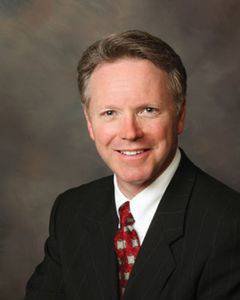This annual report gives me the opportunity to thank you for your support of Bethel College.
Your gifts mean more than you could possibly know, as our needs are great. The ever-changing landscape in higher education has forced colleges and universities across the nation to reimagine how we go about our core business and to address the challenges of a new paradigm in our approach to serving students at the highest level.
With that in mind, I have been pleased by the way Bethel faculty have engaged our newly articulated mission statement (see above) and focused on ways we might benchmark our academic success as an educational institution. As dedicated teach- ers who practice continuous evaluation of their work, they together have focused on measuring:
- Our commitment to active learning—We know that the “sage on the stage” method of transmitting knowledge or disciplinary content is of a bygone era. Data and experience tell us this generation of college students brings with them the most tactile learning styles faculty have ever faced. Secondary schools have become much more adept at implement- ing hands-on learning in their coursework, and colleges must adapt as well. Some have gone so far as to implement programs that guarantee students will not sit in class for more than 20 minutes before they engage in active learning— a guarantee that seems to speak to this generation of students.
- Our commitment to rigorous instruction and the spirit of liberal arts—For decades, rigorous academic experience has been the hallmark of a Bethel College education. However, some questions today’s faculty must address are: What does “rigorous instruction” look like in the internet age? How is it measured? As our society moves toward linking educa- tional success solely and directly to job training and employment, where do the liberal arts fit? To me, the definition of liberal arts lies not so much in what subject is taught as how it is taught. The liberal learning model is built on acquisi- tion of broader knowledge, the ability to transfer learned content from one area of study to another—and using that broader knowledge to solve problems and live a fulfilling life.
- Our commitment to critical thinking—I recently attended the Council of Independent Colleges presidents’ conversation with foundation leaders in New York City. There, I was pleased to hear leaders such as Barbara Chow—citing research done by the William and Flora Hewlett Foundation—clearly indicate that today’s employers are still looking for college graduates who can “think critically, solve problems and work in teams.” We’ve heard these same sentiments echoed at the local level by business owners, and through direct interactions with the Harvey County Economic Development Council as well as numerous opportunities to host a variety of economic development and business leaders’ forums on our campus.
Bethel students are busy. Bethel students are active. Bethel students are engaged and involved—often in a wide variety of activities, including their studies. I believe this culture of involvement is part of the reason our graduates are so suc- cessful. Transfer of knowledge from one discipline to another is a virtue of a liberal arts education, and I believe it is especially effective when activities are a recognized and intentional part of learning that contribute to the development of critical thinking skills.
- Our commitment to engaged global citizenship—Historically, the realized outcome for Bethel graduates has been commitment to service and to nurturing engaged global citizens. Above all others, I believe this characteristic comes to us directly from the values imbued by Bethel’s relationship with the Mennonite church. Mennonite Economic De- velopment Associates, Mennonite Central Committee, Mennonite Voluntary Service, our own cross-cultural learning requirements within our current curriculum—all are examples of how Bethel students and graduates engage the world in service to others. Even students who come to us from different backgrounds and cultures learn those values and understand them to be central to the Bethel experience.
With these principles in mind—these commitments that have actually been a part of this institution for over a century and a quarter—I think of this as an opportunity for all of us to engage this dialogue. It’s a chance to celebrate the value of the Bethel College experience. We hope you will take every opportunity to connect and share that experience with others.
